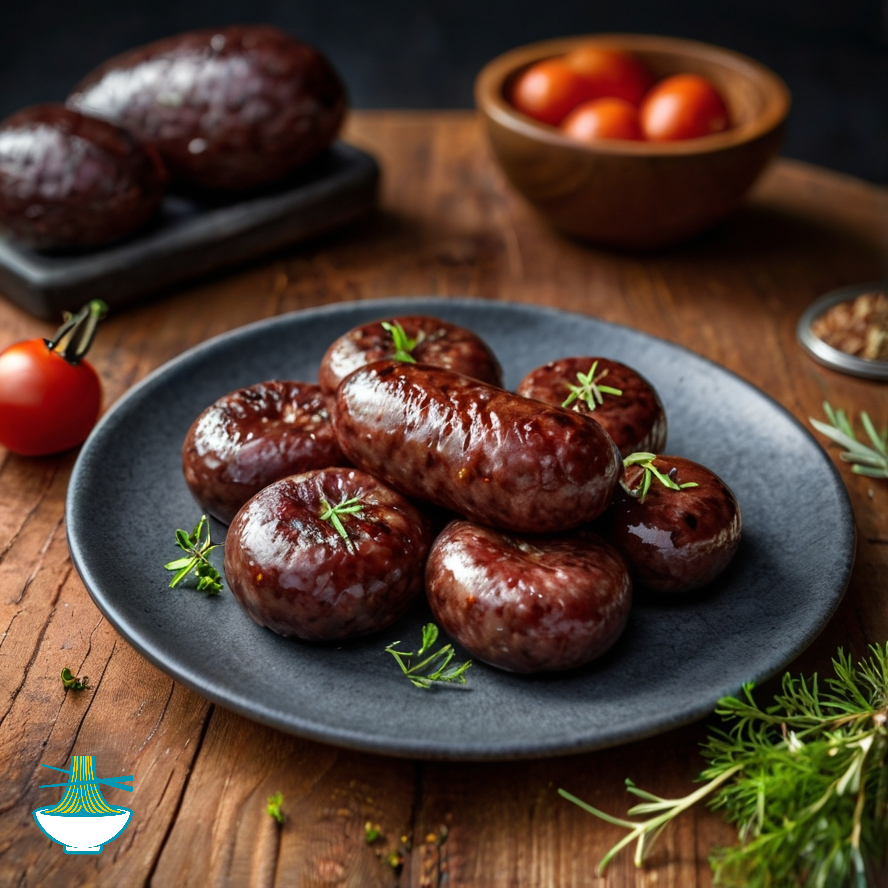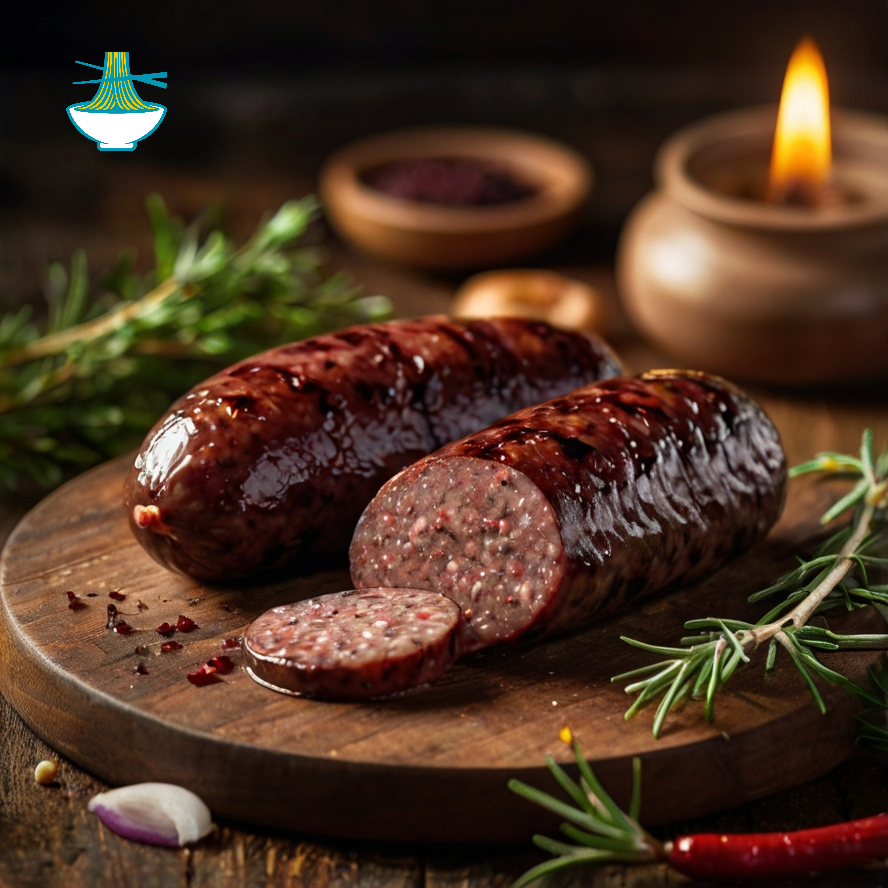Chegen sausage, a savory blend of meats including blood sausage, boasts a rich history in culinary tradition. Originating from regions renowned for their sausage-making expertise, this recipe combines various meats to create a flavorful delicacy. Dating back centuries, its roots intertwine with cultural practices and local ingredients, making it a cherished dish enjoyed by many.
Ingredients:
- 1 lb mixed meats (such as pork, beef, and veal)
- 1/2 lb blood sausage
- 1 tsp salt
- 1/2 tsp black pepper
- 1/2 tsp paprika
- 1/4 tsp garlic powder
- 1/4 tsp onion powder
- Natural casings (optional)
Method:
1. Grind the mixed meats and blood sausage using a meat grinder.
2. In a large bowl, mix the ground meats with salt, pepper, paprika, garlic powder, and onion powder until well combined.
3. If using, stuff the mixture into natural casings, forming sausages of desired length.
4. Twist or tie off the ends of the sausages.
5. Heat a grill or skillet over medium heat. Cook the sausages, turning occasionally, until browned and cooked through, about 10-12 minutes.
6. Serve hot and enjoy your homemade Chegen sausage!
Nutrition Value:
1. 1 lb mixed meats (such as pork, beef, and veal):
- Calories: Approximately 1200
- Carbohydrates: 0g
- Protein: Approximately 100g
- Fat: Approximately 80g
- Sodium: Varies depending on seasoning, typically around 200-300mg
- Cholesterol: Varies depending on meat selection, typically around 300-400mg
- Vitamins: Contains B vitamins (B12, B6, niacin) and minerals such as iron and zinc.
- Minerals: Contains iron, zinc, and phosphorus.
- Nutritional benefits: Rich in protein and essential nutrients like iron and zinc, which are important for muscle function and overall health. However, high in saturated fats and cholesterol, so moderation is key.
2. 1/2 lb blood sausage:
- Calories: Approximately 600
- Carbohydrates: Approximately 10g
- Protein: Approximately 20g
- Fat: Approximately 50g
- Sodium: Varies depending on seasoning, typically around 400-500mg
- Cholesterol: Varies depending on ingredients, typically around 150-200mg
- Vitamins: Contains B vitamins (B12, B6, niacin) and minerals such as iron and zinc.
- Minerals: Contains iron, zinc, and phosphorus.
- Nutritional benefits: High in protein and iron, but also high in saturated fats and cholesterol. Iron is essential for oxygen transport in the body, but excessive intake of saturated fats and cholesterol may increase the risk of heart disease.
3. 1 tsp salt:
- Calories: 0
- Carbohydrates: 0g
- Protein: 0g
- Fat: 0g
- Sodium: Approximately 2300mg
- Cholesterol: 0mg
- Vitamins: None
- Minerals: Sodium
- Nutritional benefits: Essential for flavor enhancement, but excessive intake can lead to high blood pressure and other health issues. Moderation is crucial.
4. 1/2 tsp black pepper:
- Calories: 0
- Carbohydrates: 0g
- Protein: 0g
- Fat: 0g
- Sodium: 1mg
- Cholesterol: 0mg
- Vitamins: Contains vitamin C, vitamin K, and some B vitamins.
- Minerals: Contains manganese, iron, and potassium.
- Nutritional benefits: Contains antioxidants and may aid digestion.
5. 1/2 tsp paprika:
- Calories: 6
- Carbohydrates: 1g
- Protein: 0g
- Fat: 0g
- Sodium: 1mg
- Cholesterol: 0mg
- Vitamins: Contains vitamin A, vitamin E, vitamin B6, and vitamin K.
- Minerals: Contains potassium and phosphorus.
- Nutritional benefits: Contains antioxidants and may have anti-inflammatory properties.
6. 1/4 tsp garlic powder:
- Calories: 5
- Carbohydrates: 1g
- Protein: 0g
- Fat: 0g
- Sodium: 1mg
- Cholesterol: 0mg
- Vitamins: Contains vitamin C, vitamin B6, and some B vitamins.
- Minerals: Contains manganese, calcium, and phosphorus.
- Nutritional benefits: Contains antioxidants and may have immune-boosting properties.
7. 1/4 tsp onion powder:
- Calories: 5
- Carbohydrates: 1g
- Protein: 0g
- Fat: 0g
- Sodium: 1mg
- Cholesterol: 0mg
- Vitamins: Contains vitamin C, vitamin B6, and some B vitamins.
- Minerals: Contains potassium, calcium, and phosphorus.
- Nutritional benefits: Contains antioxidants and may have anti-inflammatory properties.
8. Natural casings (optional):
- Calories: Varies depending on amount used, typically negligible
- Carbohydrates: 0g
- Protein: 0g
- Fat: 0g
- Sodium: Varies depending on processing, typically negligible
- Cholesterol: Varies depending on source, typically negligible
- Vitamins: None
- Minerals: None
- Nutritional benefits: Provides a natural casing for sausages, but does not contribute significantly to nutritional content.


Comments